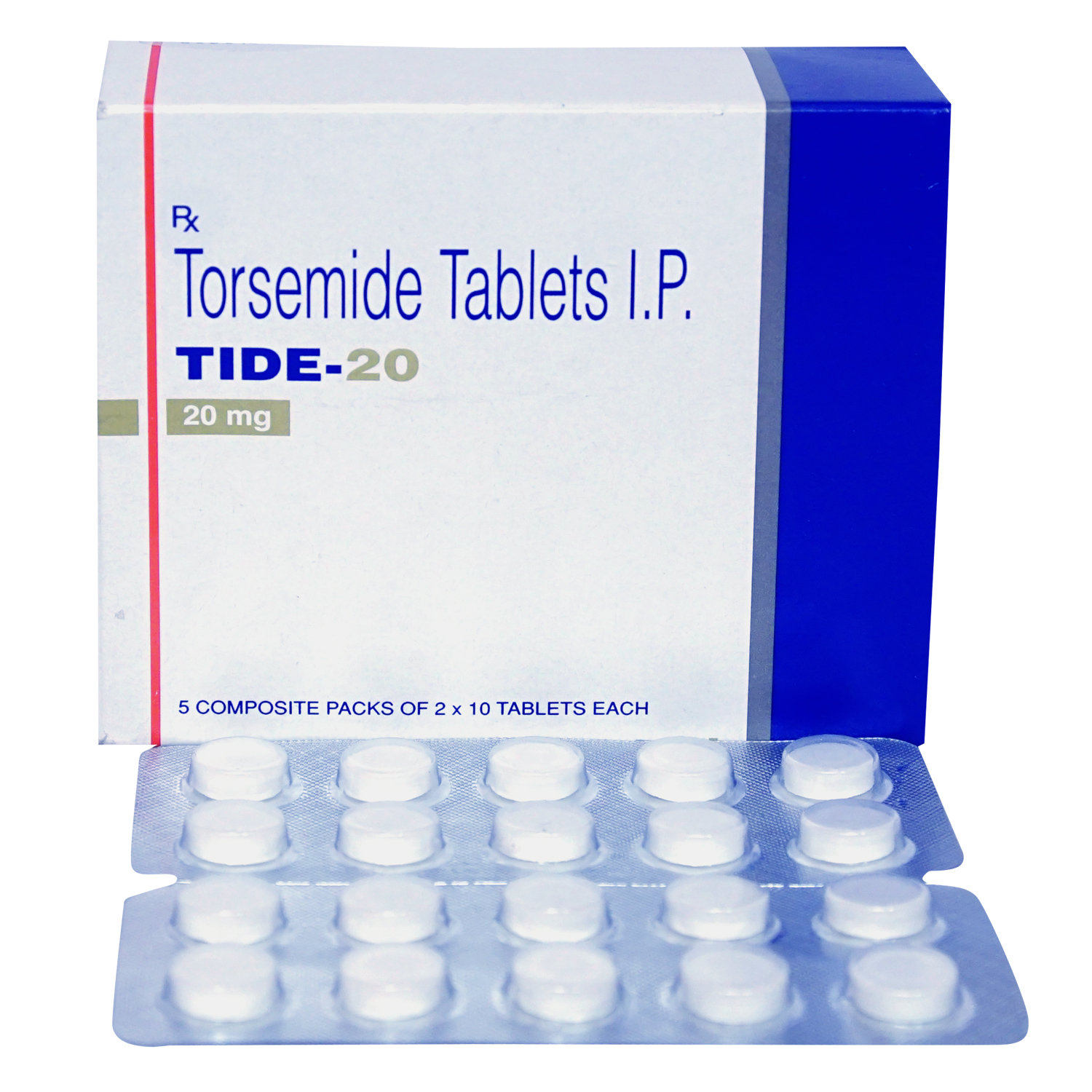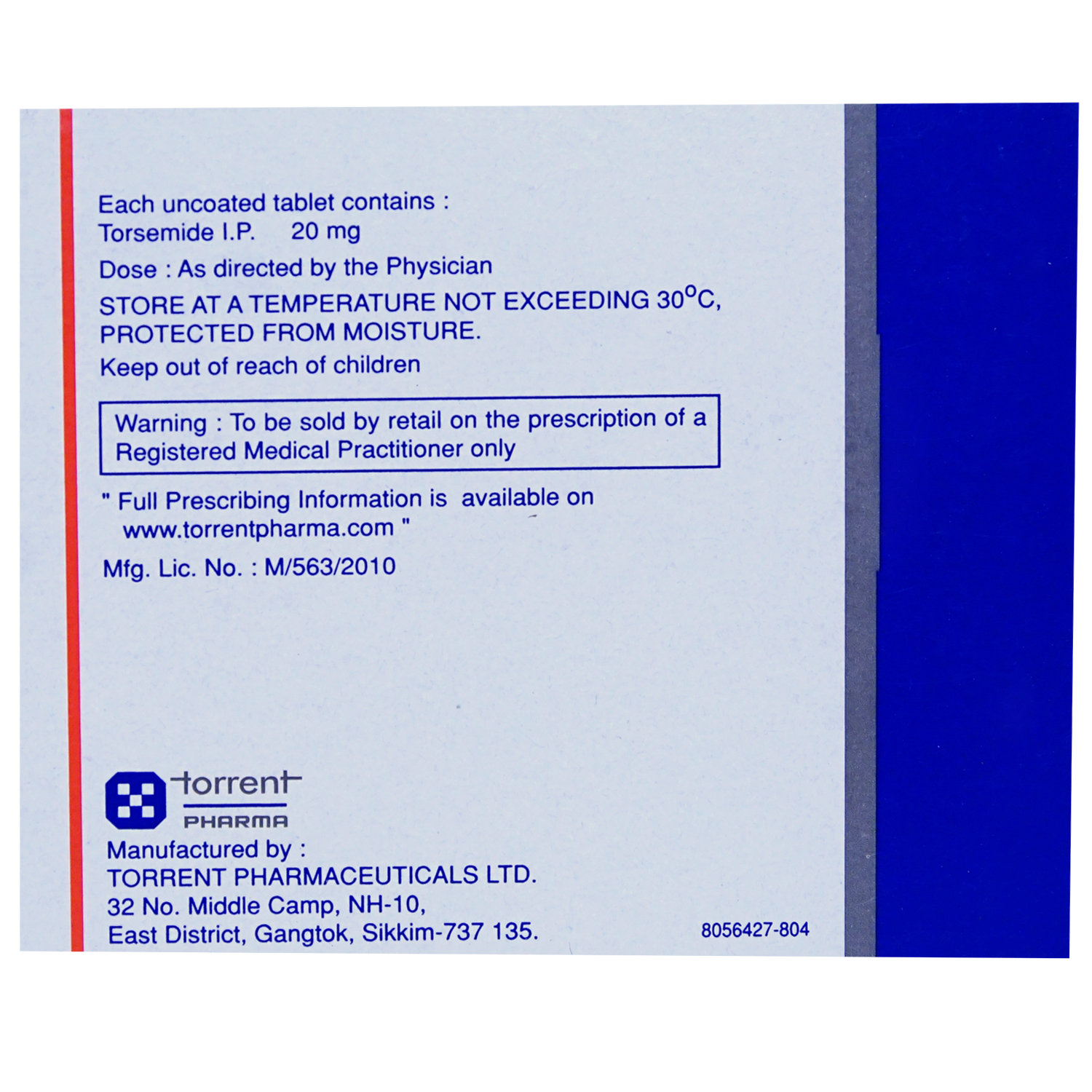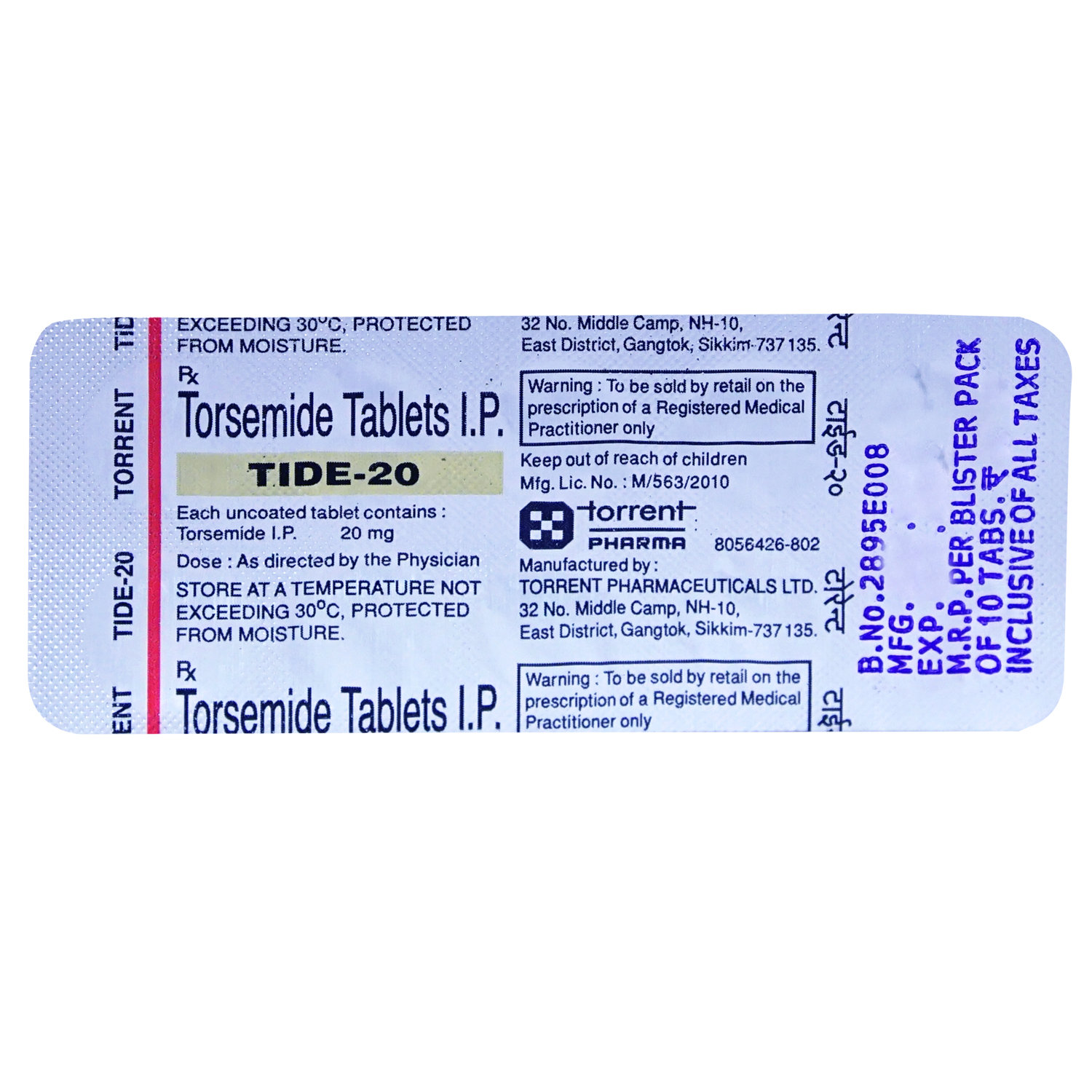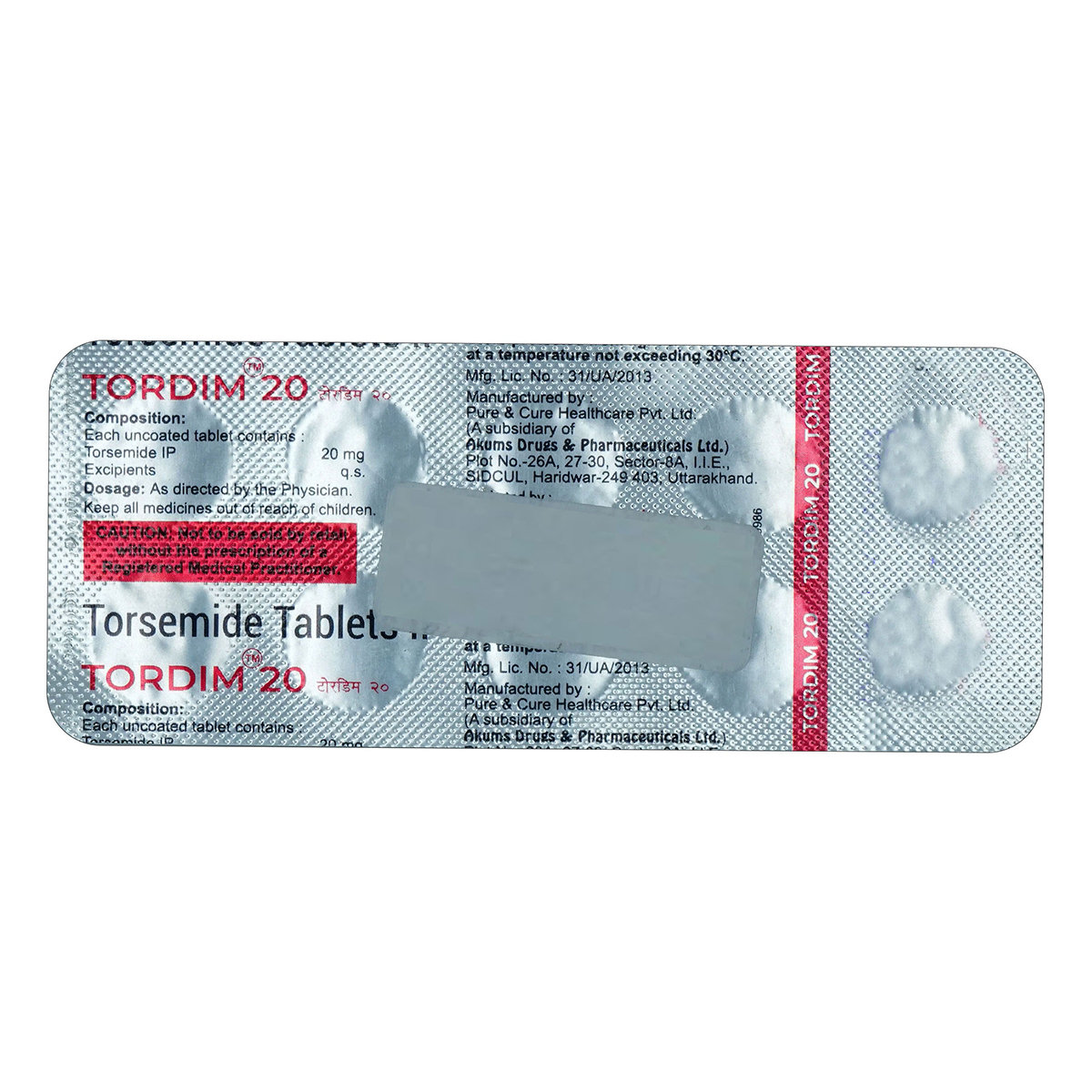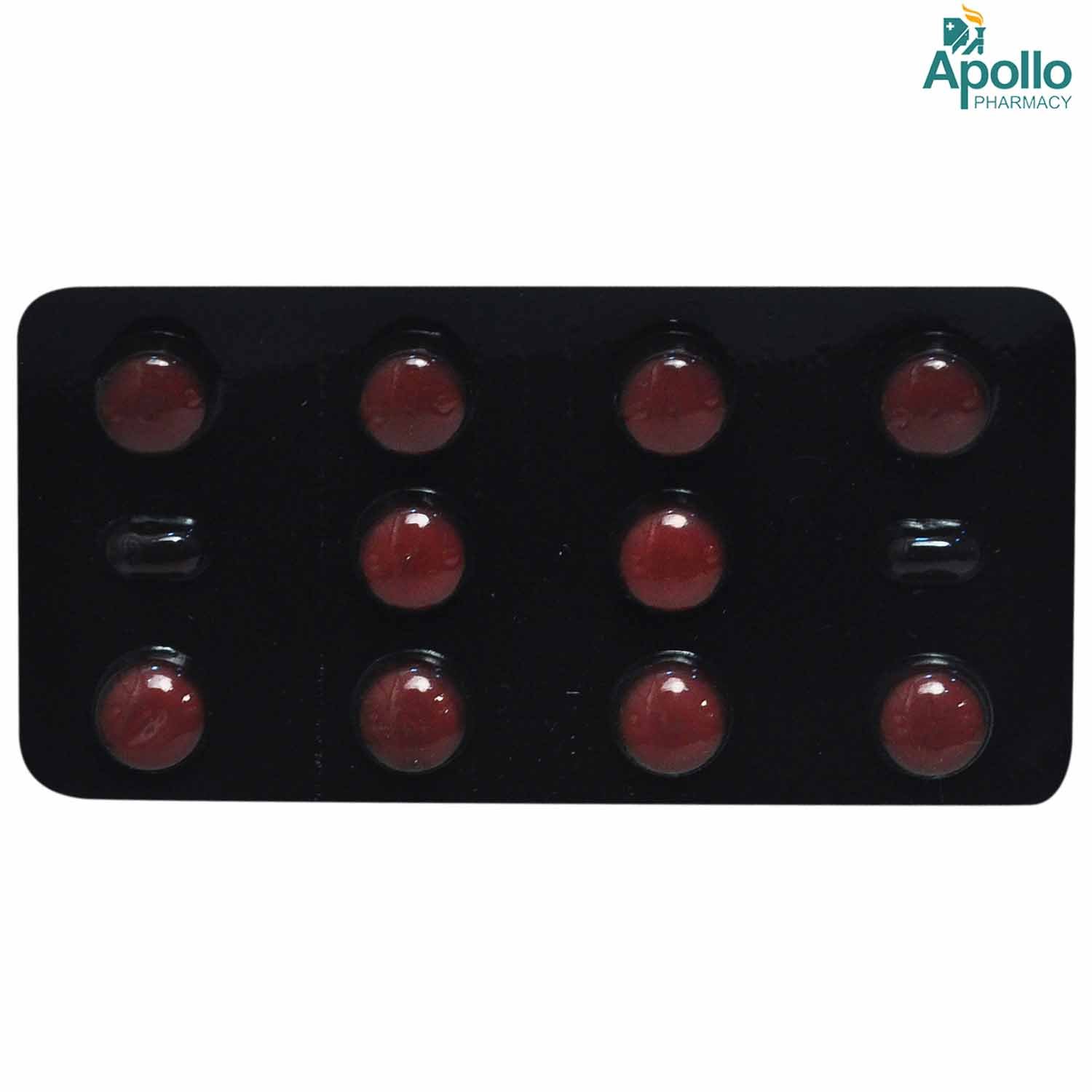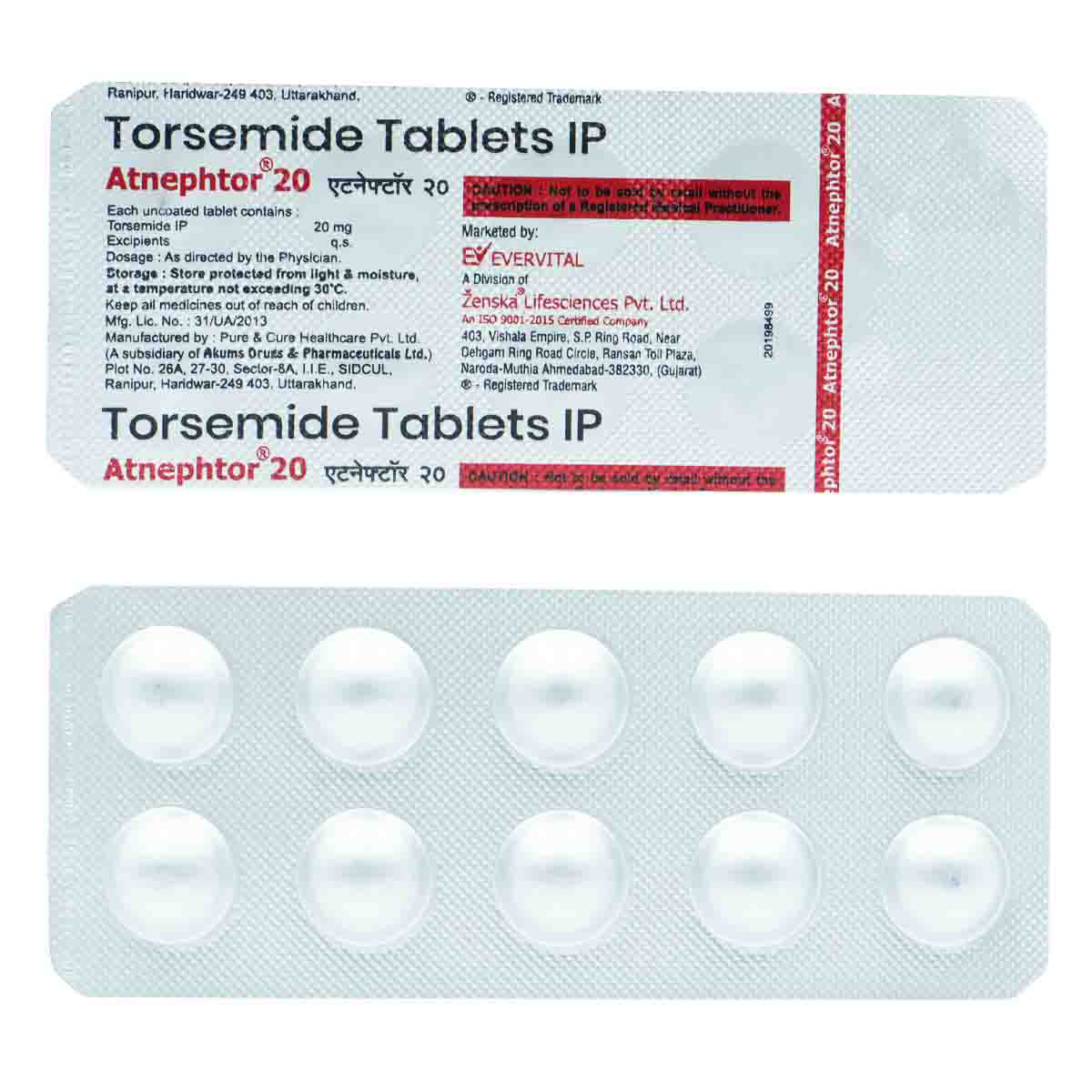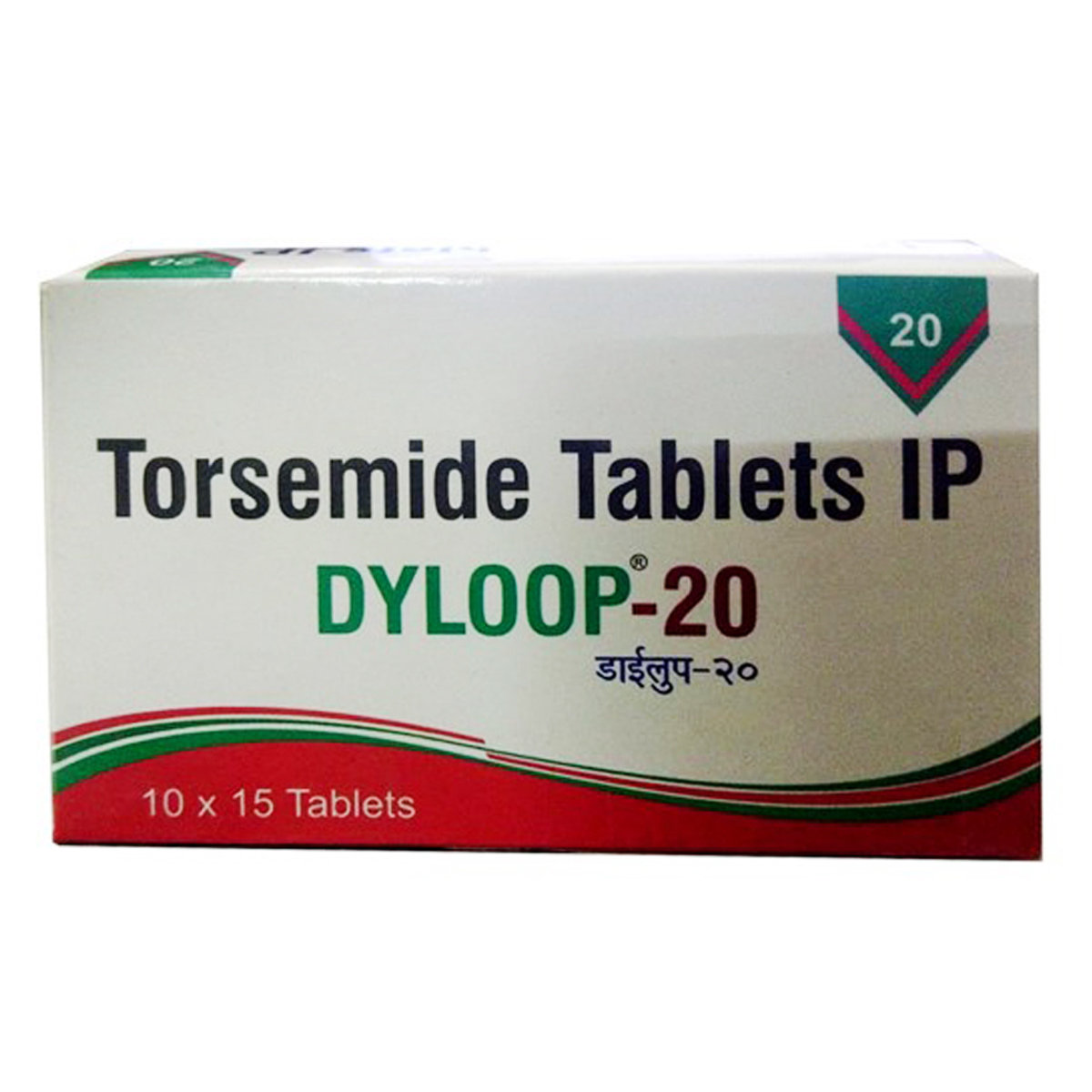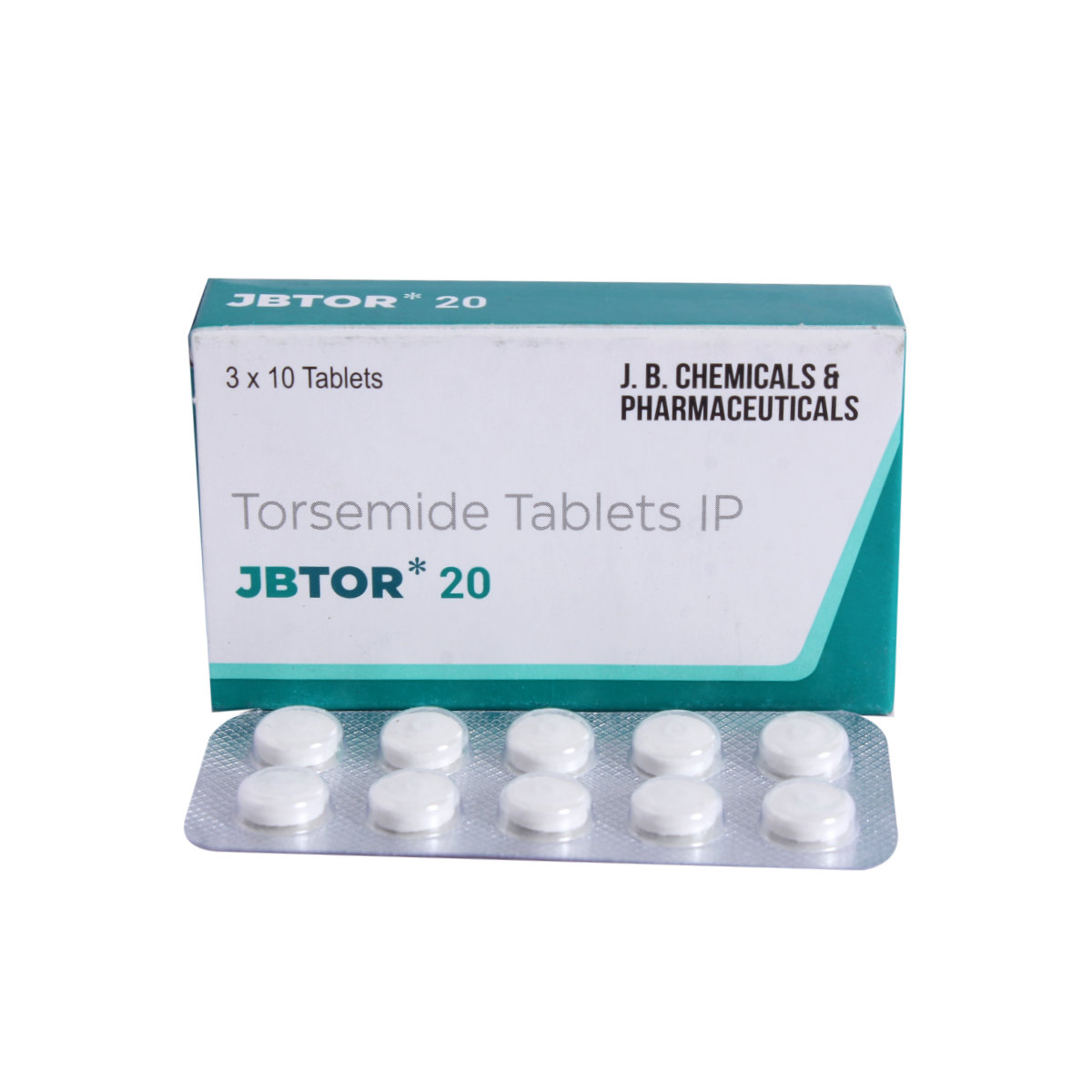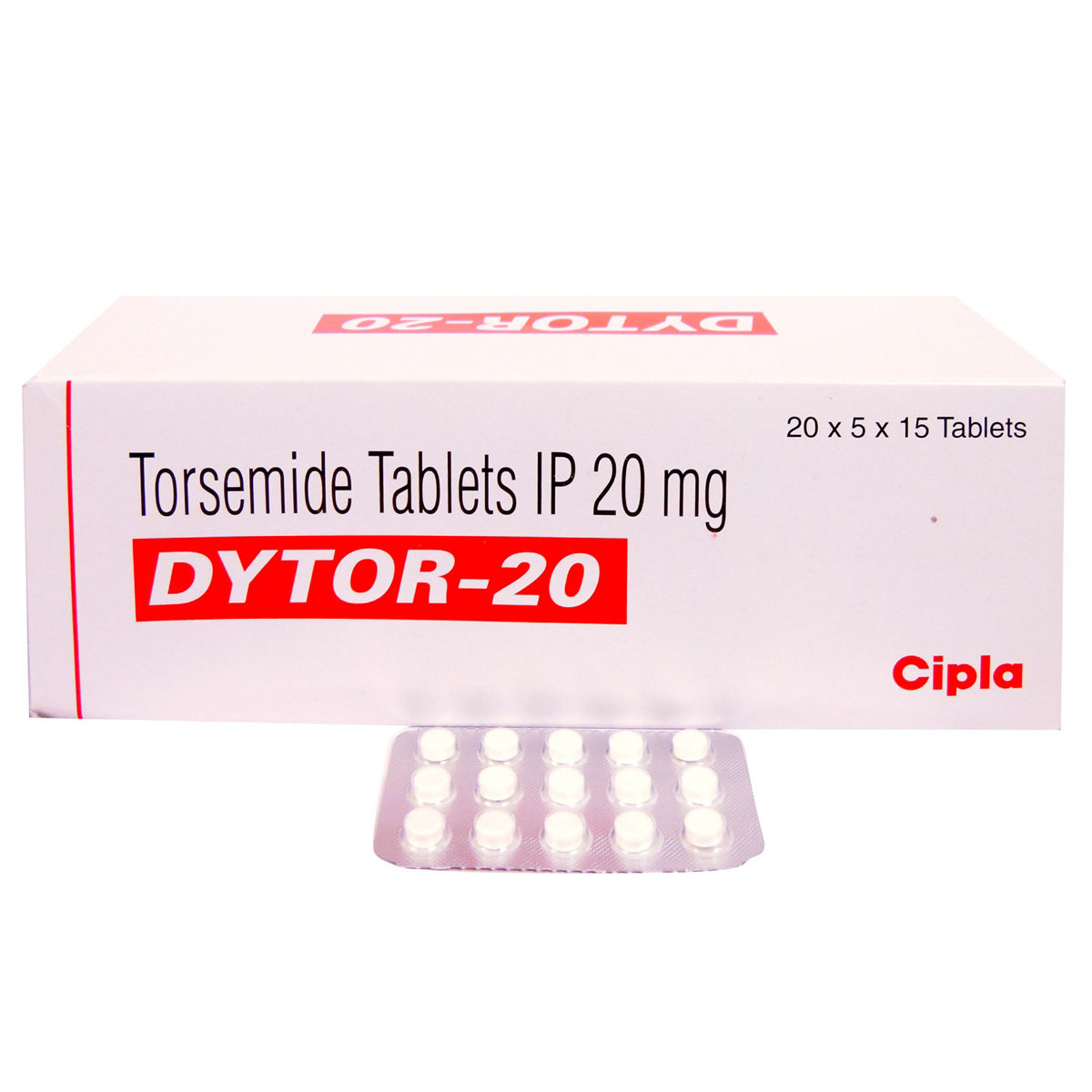Tide-20 Tablet 10's
MRP ₹131.5
(Inclusive of all Taxes)
₹19.7 Cashback (15%)
Provide Delivery Location
Online payment accepted
 Prescription drug
Prescription drugWhats That
Composition :
Manufacturer/Marketer :
Consume Type :
Expires on or after :
Return Policy :
About Tide-20 Tablet
Tide-20 Tablet belongs to a group of medicines called loop diuretics (which increase urine production). It is primarily in the treatment of hypertension or high blood pressure. Hypertension is a chronic condition in which the force exerted by the blood against the artery wall is high. The higher this blood pressure, the harder the heart has to pump. Tide-20 Tablet is also used along with other anti-hypersensitive medicines in the treatment of hypertension. It is also used to treat oedema (a build-up of fluid in the body) occurring due to heart failure and chronic renal failure (impaired kidney function resulting in kidney damage). Oedema may occur in high blood pressure where fluids of the body get trapped in the tissues of the hands, arms, feet, ankles, and legs, leading to its swelling.
Tide-20 Tablet consists of a drug called torsemide. It works by increasing the amount of urine that is passed out from the kidneys. It effectively reduces excess fluids in the body and treats oedema (swelling) associated with heart, liver, kidney, or lung disease. This also reduces the workload on the heart and makes the heart more efficient at pumping blood throughout the body. Thus, it helps to lower high blood pressure, reducing the chances of heart attack or stroke.
You can take Tide-20 Tablet with food or without food. It should be swallowed whole with a glass of water. Do not chew, bite, or break it. Your doctor will advise you about the dose based on your medical condition. In some cases, you may experience certain common side effects such as dehydration, headache, nausea, dizziness, muscle cramps, or weak muscles. Most of these side effects do not require medical attention and subside over time. However, consult your doctor if the side effects are persistent for a longer duration.
Tide-20 Tablet should be avoided if you are allergic to this medicine of any of its components. Inform your doctor if you are suffering from any kidney or liver, or heart disease. Let your doctor know if you are pregnant or are breastfeeding before taking Tide-20 Tablet . Tide-20 Tablet may cause dizziness, and vision problems, hence avoid driving vehicles or operating machine that require mental concentration. Avoid alcohol consumption while taking Tide-20 Tablet as it could lead to increased drowsiness, dizziness and liver damage.
Uses of Tide-20 Tablet
Directions for Use
Key Benefits
When Tide-20 Tablet is taken, the blood vessels in your body will be relaxed and it will help in lowering the blood pressure. Also, it relaxes the blood vessels and helps to improve blood flow. It helps in losing out excess fluids from the body by increasing the production of urine which helps reduce the workload on the heart and makes it more efficient for pumping blood throughout the body. Thus, it helps to lower high blood pressure, also relieves oedema and helps you carry out your daily activities more efficiently.
Storage
- Reduce salt intake to minimize fluid buildup.
- Use compression stockings, sleeves, or gloves.
- Gently massage the affected area towards the heart.
- Protect the swollen area from injury and keep it clean.
- Use lotion or cream to keep the skin moisturized.
- Inform Your Doctor: Notify your doctor immediately about your diarrhoea symptoms. This allows them to adjust your medication or provide guidance on managing side effects.
- Stay Hydrated: Drink plenty of fluids to replace lost water and electrolytes. Choose water, clear broth, and electrolyte-rich drinks. Avoid carbonated or caffeinated beverages to effectively rehydrate your body.
- Follow a Bland Diet: Eat easy-to-digest foods to help firm up your stool and settle your stomach. Try incorporating bananas, rice, applesauce, toast, plain crackers, and boiled vegetables into your diet.
- Avoid Trigger Foods: Steer clear of foods that can worsen diarrhoea, such as spicy, fatty, or greasy foods, high-fibre foods, and dairy products (especially if you're lactose intolerant).
- Practice Good Hygiene: Maintain good hygiene to prevent the spread of infection. To stay healthy, wash your hands frequently, clean and disinfect surfaces regularly, and avoid exchanging personal belongings with others.
- Take Anti-Diarrheal Medications: If your doctor advises, anti-diarrheal medications such as loperamide might help manage diarrhoea symptoms. Always follow your doctor's directions.
- Keep track of your diarrhoea symptoms. If they don't get better or worse or are accompanied by severe stomach pain, blood, or dehydration signs (like extreme thirst or dark urine), seek medical help.
- Drink warm fluids such as warm water with honey, broth, soup or herbal tea to soothe sore throat.
- Gargle with warm salt water.
- Suck on lozenges to increase the production of saliva and soothe your throat.
- Use a humidifier to soothe sore throat as it adds moisture to the air and makes breathing easier.
- Take medications with food (if recommended): It can help prevent stomach distress and indigestion.
- Eat smaller, more frequent meals: Divide daily food intake into smaller, more frequent meals to ease digestion.
- Avoid trigger foods: Identify and avoid foods that trigger indigestion, such as spicy, fatty, or acidic foods.
- Stay upright after eating: Sit or stand upright for at least 1-2 hours after eating to prevent stomach acid from flowing into the oesophagus.
- Avoid carbonated drinks: Avoid drinking carbonated beverages, such as soda or beer, which can worsen indigestion.
- Manage stress: To alleviate indigestion, engage in stress-reducing activities like deep breathing exercises or meditation.
- Consult a doctor if needed: If indigestion worsens or persists, consult a healthcare professional to adjust the medication regimen or explore alternative treatments.
- Inform your doctor about the nausea and discuss possible alternatives to the medication or adjustments to the dosage.
- Divide your daily food intake into smaller, more frequent meals to reduce nausea.
- Opt for bland, easily digestible foods like crackers, toast, plain rice, bananas, and applesauce.
- Avoid certain foods that can trigger nausea, such as fatty, greasy, spicy, and smelly foods.
- Drink plenty of fluids, such as water, clear broth, or electrolyte-rich beverages like coconut water or sports drinks.
- Use ginger (tea, ale, or candies) to help relieve nausea.
- Get adequate rest and also avoid strenuous activities that can worsen nausea.
- Talk to your doctor about taking anti-nausea medication if your nausea is severe.
- Record when your nausea occurs, what triggers it, and what provides relief to help you identify patterns and manage your symptoms more effectively.
- Inform your doctor about your constipation symptoms. They may adjust your medication or advise alternative treatments.
- Stay hydrated by drinking sufficient of water (at least 8-10 glasses a day) to help soften stool and promote bowel movements.
- Increase fibre intake by eating foods high in fibre, such as fruits, whole grains, vegetables and legumes, to help bulk up the stool.
- Establish a bowel routine by trying to go to the bathroom at the same time each day to train your bowels.
- Engaging in regular exercise, like walking or yoga, can support in bowel movement stimulation.
- Consult your doctor if constipation persists, and discuss alternative treatments or adjustments to your medication.
- Hydrate your body: Drink enough water to prevent dehydration and headaches.
- Calm Your Mind: Deep breathing and meditation can help you relax and relieve stress.
- Rest and Recharge: Sleep for 7-8 hours to reduce headache triggers.
- Take rest: lie down in a quiet, dark environment.
- Cold or warm compresses can help reduce tension.
- Stay Upright: Maintain good posture to keep symptoms from getting worse.
- To treat headaches naturally, try acupuncture or massage therapy.
- Over-the-counter pain relievers include acetaminophen and ibuprofen.
- Prescription Assistance: Speak with your doctor about more substantial drug alternatives.
- Severe Headaches: Seek emergency medical assistance for sudden, severe headaches.
- Frequent Headaches: If you get reoccurring headaches, consult your doctor.
- Headaches with Symptoms: Seek medical attention if your headaches include fever, disorientation, or weakness.
Drug Warnings
Tide-20 Tablet should not be given to the people allergic to it or any other medicine in the past. It is also not recommended in people who have low blood pressure (less than 90 mm of Hg), had history of heart attack, kidney disease, liver disease, diabetes, cardiogenic shock (sudden stopping of blood flow to the heart), and aortic stenosis (heart valve problem). Apart from this, if you experience sudden wheeziness, tightness in the chest or throat, difficulty breathing, swelling of the eyelids, face or lips, rash or itching (especially affecting your whole body), inform your doctor immediately.
Drug-Drug Interactions
Drug-Drug Interactions
Login/Sign Up
Co-administration of Tide-20 Tablet can make Desmopressin may increase the risk of hyponatremia (low levels of salt in the blood).
How to manage the interaction:
If you have to use Desmopressin and Tide-20 Tablet together, a doctor may adjust the dose or monitor you more frequently to safely use both medications. However, if you experience loss of appetite, headache, nausea, vomiting, lethargy (very tired), irritability, difficulty concentrating, weakness, unsteadiness, memory impairment, confusion, muscle spasm, decreased urination, and/or sudden weight gain, contact your doctor immediately as these may be symptoms of water intoxication (water poisoning) and hyponatremia (low levels of salt in the blood). Do not discontinue the medication without consulting a doctor.
Co-administration of tizanidine with Tide-20 Tablet may result in low blood pressure.
How to manage the interaction:
Although taking tizanidine and Tide-20 Tablet together can possibly result in an interaction, it can be taken if your doctor has advised it. However, if you experience symptoms such as blurred vision, dry mouth, dry skin, frequent urination, nausea, and stomach pain, consult a doctor immediately. Do not discontinue any medications without consulting a doctor.
Co-administration of tobramycin with Tide-20 Tablet increases the risk of toxicity.
How to manage the interaction:
Although taking tobramycin and Tide-20 Tablet together can possibly result in an interaction, it can be taken if your doctor has advised it. However, if you experience symptoms such as blurred vision, dry mouth, dry skin, frequent urination, nausea, and stomach pain, consult a doctor immediately. Do not discontinue any medications without consulting a doctor.
Co-administration of amiodarone with Tide-20 Tablet can increase the risk the risk of irregular heart rhythm.
How to manage the interaction:
Taking amiodarone with Tide-20 Tablet together is recommended to avoid as it can result in an interaction, it can be taken if your doctor has advised it. However, contact a doctor immediately if you experience sudden dizziness, lightheadedness, fainting, shortness of breath, sweating, or rapid heartbeat. Do not discontinue any medications without consulting a doctor.
Co-administration of neomycin with Tide-20 Tablet can increase the risk of toxicity.
How to manage the interaction:
Although taking neomycin and Tide-20 Tablet together can possibly result in an interaction, it can be taken if your doctor has advised it. However, if you experience symptoms such as hearing loss, ringing in the ears, vertigo, and kidney problems, consult a doctor immediately. Do not discontinue any medications without consulting a doctor.
Co-administration of Ziprasidone with Torsemide may increase the risk of irregular heart rhythm.
How to manage the interaction:
Co-administration of Ziprasidone with Torsemide can possibly result in an interaction, but it can be taken together if prescribed by a doctor. However, consult a doctor if you experience sudden dizziness, lightheadedness, fainting, shortness of breath. Do not discontinue any medications without consulting a doctor.
Taking Tide-20 Tablet together with streptomycin may increase the risk or severity of kidney problems.
How to manage the interaction:
Although taking streptomycin and Tide-20 Tablet together can possibly result in an interaction, it can be taken if your doctor has advised it. However, if you experience symptoms such as blurred vision, dry mouth, dry skin, frequent urination, nausea, and stomach pain, consult a doctor immediately. Do not discontinue any medications without consulting a doctor.
Co-administration of Amikacin with Tide-20 Tablet may increase this risk of side effects.
How to manage the interaction:
Although taking amikacin and Tide-20 Tablet together can result in an interaction, it can be taken if a doctor has advised it. However, if you experience symptoms such as ringing in the ears, irregular urination, vomiting, weakness, or muscle cramps. Do not discontinue any medications without consulting a doctor.
Co-administration of kanamycin with Tide-20 Tablet can increase the risk of toxicity.
How to manage the interaction:
Although taking kanamycin and Tide-20 Tablet together can possibly result in an interaction, it can be taken if your doctor has advised it. However, if you experience symptoms such as hearing loss, ringing in the ears, vertigo, and kidney problems, consult a doctor immediately. Do not discontinue any medications without consulting a doctor.
Co-administration of netilmicin with Tide-20 Tablet can increase the risk of toxicity.
How to manage the interaction:
Although taking netilmicin and Tide-20 Tablet together can possibly result in an interaction, it can be taken if your doctor has advised it. However, if you experience symptoms such as hearing loss, ringing in the ears, vertigo, and kidney problems, consult a doctor immediately. Do not discontinue any medications without consulting a doctor.
Drug-Food Interactions
Drug-Food Interactions
Login/Sign Up
Diet & Lifestyle Advise
- Maintain your weight under control with BMI 19.5-24.9.
- Doing regular physical activity or exercise for at least 150 minutes per week, or about 30 minutes most days of the week can help lower your raised blood pressure by about 5 mm of Hg.
- Prefer eating diet rich in whole grains, fruits, veggies, and low-fat dairy products.
- Limit intake of sodium chloride (table salt) in your daily diet to 2300 mg per day. This helps relieve the swelling of the body.
- Avoid alcohol consumption as it can cause undesirable side effects.
- Quitting smoking is the best strategy to lower the risk of heart disease.
- Avoid chronic stress as it can raise your blood pressure. Try to enjoy and spent time with your loved ones to cope with stress and practice mindfulness techniques.
- Monitor your blood pressure daily and if there is too much fluctuation then immediately contact your doctor.
- Try to include heart-healthy omega 3 fatty acids containing food drinks in your daily diet. You can also use low-fat cooking oil like olive oil, soybean oil, canola oil, and coconut oil can help in lowering your elevated blood pressure.
Side Effects of Tide-20 Tablet
- Hypotension (low blood pressure)
- Dehydration
- Headache
- Feeling confused or dizzy
- Muscle cramps or weak muscles
- Feeling or being sick (nausea or vomiting
- A fast or irregular heartbeat
- Reduced levels of potassium, and magnesium in your blood.
Habit Forming
Therapeutic Class
All Substitutes & Brand Comparisons
RX
Out of StockTordim 20 Tablet 10's
Renspur Healthcare Pvt Ltd
₹51.5
(₹4.64 per unit)
60% CHEAPERRX
Torcel-20 Tablet 10's
Celera Pharma Pvt Ltd
₹61.5
(₹5.54 per unit)
53% CHEAPERRX
Leotor-20 Tablet 10's
Sudha Lifesciences Pvt Ltd
₹74
(₹6.66 per unit)
43% CHEAPER
Author Details
We provide you with authentic, trustworthy and relevant information
Drug-Diseases Interactions
Drug-Diseases Interactions
Login/Sign Up
FAQs
Drug-Drug Interactions Checker List
- ASPIRIN
- CARVEDILOL
- WARFARIN
- DIGOXIN
- INSULIN GLARGINE
- METOLAZONE
- METOPROLOL
- ESOMEPRAZOLE
- CLOPIDOGREL
- DISOPYRAMIDE
- LITHIUM
- DICLOFENAC
- IBUPROFEN
- SUCRALFATE
- PIMOZIDE
Special Advise
Disease/Condition Glossary
Hypertension: It is a chronic condition wherein the blood pressure increases resulting in decreased blood and oxygen flow to the heart. Raised blood pressure can lead to angina (chest pain) and heart attack (when blood supply to the heart is blocked). Additionally, high blood pressure also causes brain damage (stroke) and kidney failure. High blood pressure can be diagnosed with the help of a blood pressure monitor or sphygmomanometer. Ideal blood pressure is around 120/80 mm of Hg.
Oedema: is a condition in which there is an excess of fluid in certain parts of the body (mainly ankles, feet, and legs), causing inflammation. It can occur due to various reasons like sitting for long periods or being overweight.

Have a query?
Alcohol
Safe if prescribed
Consumption of alcohol should be avoided during treatment with Tide-20 Tablet as it can cause undesirable side effects.
Pregnancy
Consult your doctor
Tide-20 Tablet should not be used in pregnant women unless absolutely necessary. Hence, consult your doctor if you are pregnant or planning a pregnancy. Your doctor will give this medicine only if the benefits overweigh the potential risks.
Breast Feeding
Consult your doctor
Tide-20 Tablet should not be used in nursing mothers unless clearly necessary. Your doctor will give this medicine only if the benefits overweigh the potential risks.
Driving
Safe if prescribed
It is not recommended to drive vehicles after taking Tide-20 Tablet as it may cause drowsiness or dizziness.
Liver
Consult your doctor
Tide-20 Tablet should be used with caution if you have a history of liver diseases/conditions as sudeen changes in electrolyte imbalance can cause hepatic coma.
Kidney
Consult your doctor
Tide-20 Tablet to be used with caution, especially if you have a history of Kidney diseases/conditions. Dose adjustment may be done by your physician depending upon your current kidney conditions.
Children
Safe if prescribed
Tide-20 Tablet is not recommended for use in children below 16 years of age as the safety and efficacy for this medicine is not established.
Recommended for a 30-day course: 3 Strips

